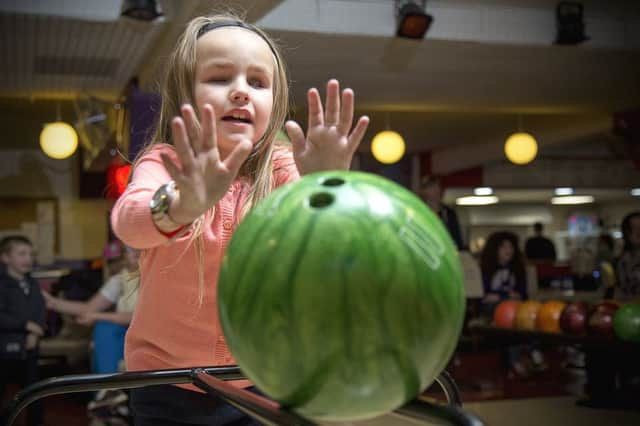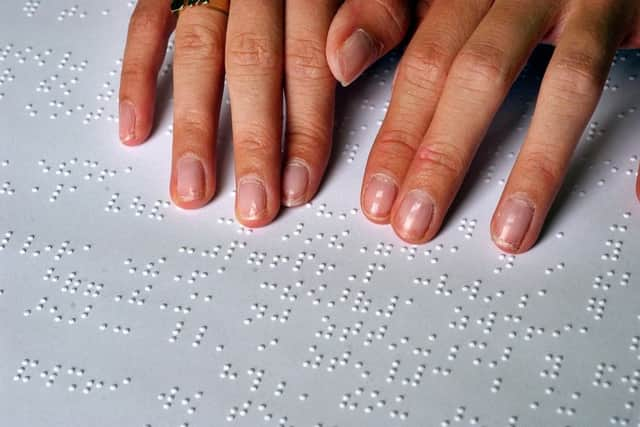Scottish schools urged not to fail sight impaired


The Royal National Institute of Blind People Scotland (RNIB) has spoken of its concern as to what the future holds for the 3,000 children and young people in Scotland who are blind or partially sighted.
Dominic Everett, education and family services manager for RNIB Scotland, has revealed that provision was fragmented for the 70 per cent of pupils with sight loss who attend mainstream schools.
Advertisement
Hide AdAdvertisement
Hide Ad“Our children are surviving in school. They are certainly not thriving,” he said.


The debate surrounding attainment levels in Scottish schools is raging and he is fearful that while the Scottish Government moves to rectify the issue, with First Minister Nicola Sturgeon recently touring New York schools in a bid to identify good practice, visually impaired children will once again be overlooked.
He said: “Attainment levels and the standard of education for visually impaired children needs to be included in this national debate. We need to have the conversation as to what future provision should look like and how it can be delivered most effectively, to fully enable the next generation of visually impaired adults. There is a need to improve what is currently on offer. Children and young people with sight loss are not being identified quickly enough. If we are to increase their personal independence, improve life chances and enhance health and wellbeing then we need to start at the very earliest stage to make sure it happens.”
The charity held a major conference attended by more than 200 health professionals in Stirling on Friday.
Kelly Curran Coote, from East Kilbride, delivered the keynote address, talking about how she is preparing two-year-old daughter Zara for a fulfilling life. Both have bilateral microphthalmia (small eyes), coloboma (under-developed eyes) and nystagmus (involuntary movement of the eyes).
“We have adopted a ‘no limit’ approach to parenting for Zara,” Kelly told the conference. “We hope she is given an equal chance to thrive, play, learn, develop independence and grow in confidence. We will encourage her to explore her environment and world.
“We are not naive to think it will be plain sailing all the way, but we do have an understanding of some of the obstacles she might face. We want her to have a happy, healthy life with loads of fun and positive experiences through childhood that will help her choose her own path in life.”
Other topics at the conference included how new technology can make the classroom more accessible, sensory toys that stimulate by touch and sound, and the future of braille as a communication medium.
Advertisement
Hide AdAdvertisement
Hide AdA Scottish Government spokeswoman said: “We want every child in Scotland to be able to reach their full potential and for everyone’s experience of education to be a positive one. The Additional Support for Learning Act places a duty on education authorities to identify, provide for and review the additional support needs of their pupils, including children with a visual impairment.”